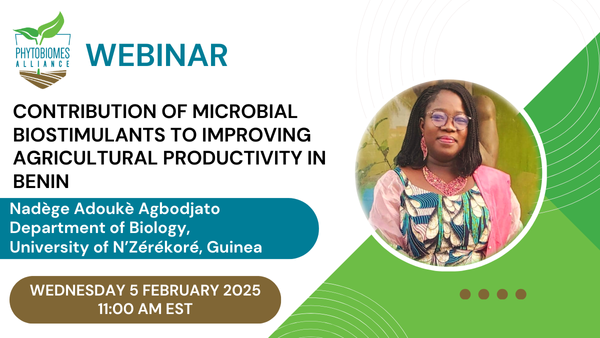
Contribution of Microbial Biostimulants to Improving Agricultural Productivity in Benin
February 05, 2025
Location
Online
Presenters
Nadège Adoukè Agbodjato
Lecturer-Researcher
University of N’Zérékoré, Guinea
Outline
Agricultural sustainability is a major challenge in the current context of climate change and increasing pressure on natural resources. Microbial biostimulants such as PGPR (Plant Growth-Promoting Rhizobacteria), arbuscular mycorrhizal fungi (AMF) and chitosan, a bioproduct extracted from crustacean exoskeletons, offer an innovative, environmentally-friendly approach to improving agricultural productivity. These biological agents act in synergy with plants and soils, increasing microbial biodiversity, boosting ecosystem resilience and stimulating plant growth. They represent a promising solution for improving agricultural productivity while respecting the environment.
This communication explores the importance of microbial biostimulants in agriculture, highlighting their mechanisms of action in the soil, including their ability to stimulate plant growth, improve nutrient uptake and enhance resistance to abiotic stress.
Through specific case studies carried out in Benin, the effectiveness of biostimulants based on PGPR, CMA and chitosan was demonstrated, with convincing results such as a significant increase in maize productivity, while reducing excessive use of mineral fertilizers and preserving soil health.
In conclusion, the use of biostimulants based on PGPRs, CMAs and chitosan therefore represent a strategic solution for meeting the challenges of food security and sustainable development in Africa, while strengthening the autonomy of farming communities.
Recording
Slides
Introduction by Kellye Eversole
Presentation by Dr. Nadège Adoukè Agbodjato
